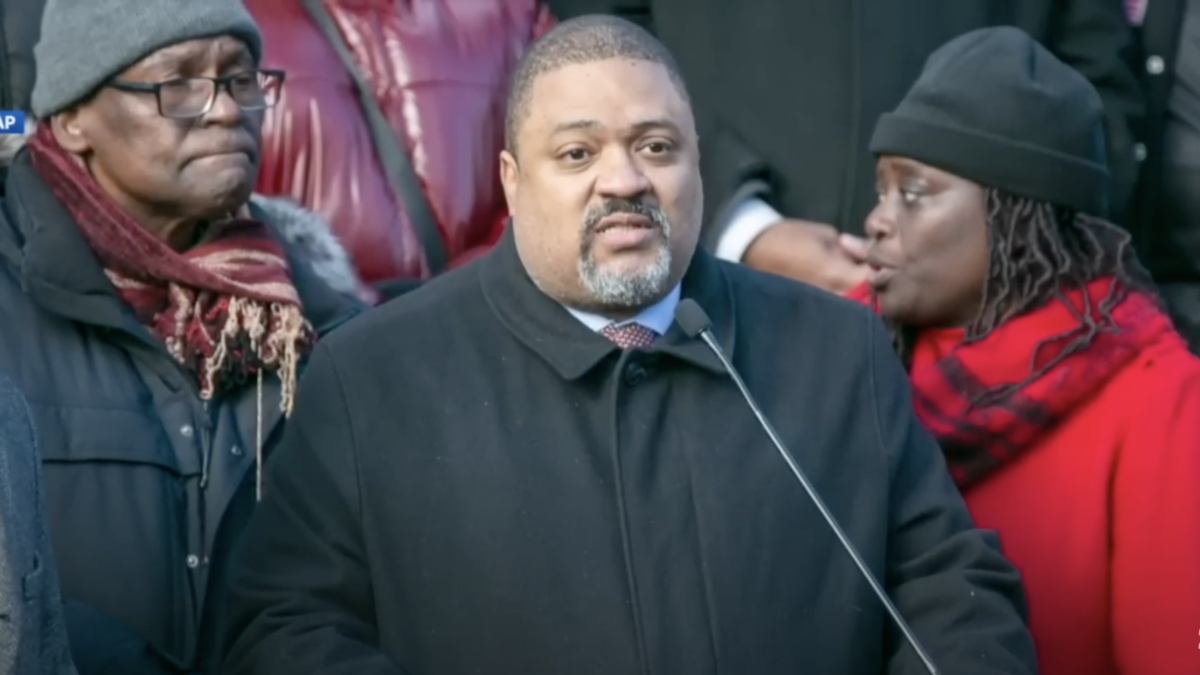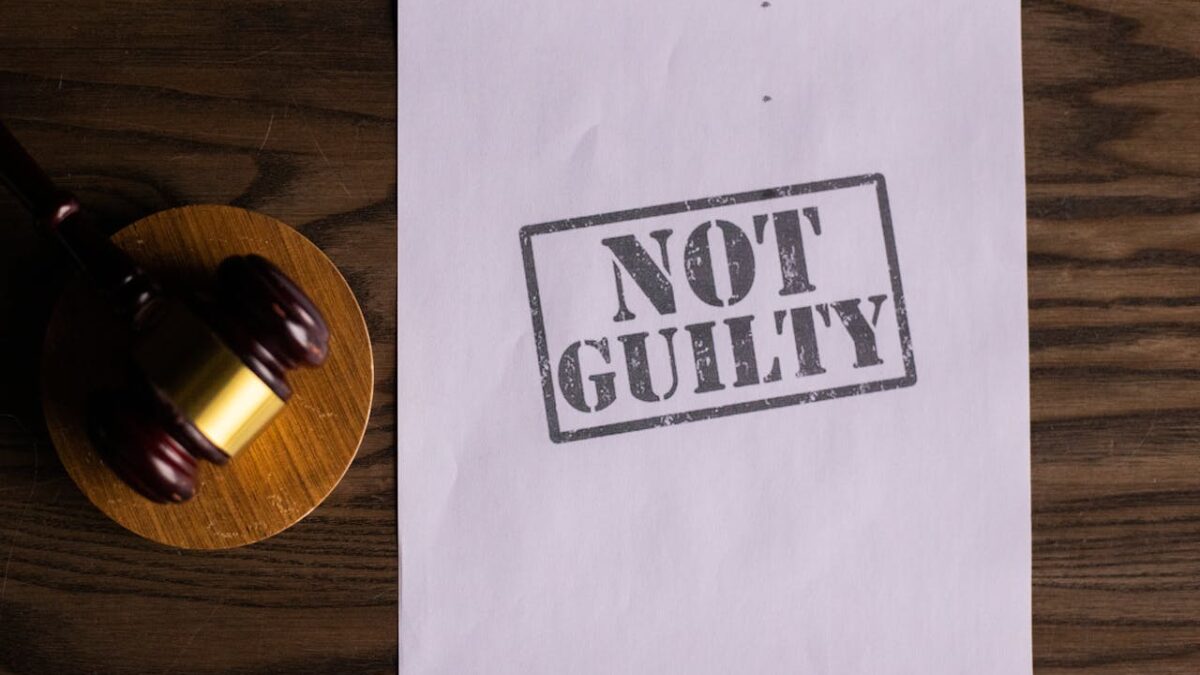
The legislative “fix” for the Indiana Religious Freedom Restoration Act (RFRA) should have been rejected, not passed by the Indiana Legislature and signed into law by Gov. Mike Pence, as it was on Thursday. The original law did not need to be fixed. The changes distort the law to predetermine (or, should I say, “fix”) the winners and losers in advance in cases when people get sued under discrimination laws. The thinking behind the Indiana “fix” wrongly assumes that discrimination laws are never used improperly to punish dissenters or to force them to communicate messages they don’t approve.
The original Indiana RFRA passed earlier in the week protects people, because it allows people to raise their religious beliefs as a defense—a defense that the court would weigh against the particular state interest at issue in a specific case by using the state RFRA’s four-part test. This four-part test filters legitimate religious claims from phony or extreme ones, granting exemptions only to those claims that pass all four parts. What the original Indiana RFRA (the one enacted before the “fix”) did not do was grant the religious believer total immunity in all conflicts with state law. It, like all the other state RFRAs and the federal RFRA, does not allow a person to get away with anything simply by saying, “My religion made me do it.”
The Indiana “fix” ruinously distorts the workings of the four-part test by prohibiting business owners from invoking their rights under the Indiana RFRA when someone sues the business for discrimination based on sexual orientation, gender identity, religion, etc. No one explained why every application of a nondiscrimination law should always prevail over a claim of religious conscience. Surely, the factual context of what happened in a particular case, what exactly was the charge of discrimination, and what religious belief the defendant asserts would make a difference as to who should prevail.
Not anymore. The Indiana “fix” means that, rather than courts weighing the religious complaint in light of the facts of the case, the new amendment stacks the deck in favor of the person filing the discrimination lawsuit. This new change unjustly deprives citizens their day in court, denies the claim for freedom a fair hearing, by rigging the system in advance. What kind of religious liberty is that?
New Weapon for Punishing Thoughtcrimes
Undoubtedly, those proposing this legislative “fix” had good motives, but they wrongly assumed that discrimination laws are never used improperly—for example, as a weapon to punish others for declining to promote their message favoring same-sex marriage. The few cases involving religious liberty and discrimination laws have never involved business owners with beliefs that they “must deny service to gay customers.” Those cases simply don’t exist. I am unaware of any religion that teaches such an extreme view, and I am unaware of any business owners or professionals who say their religious beliefs mean they can never serve homosexuals, no matter what the context. The actual cases involve people who in good conscience cannot promote a message supporting same-sex marriage, or participate in a same-sex ceremony, and they get sued for discrimination.
With the emerging situation nationally of many court orders imposing same-sex marriage on various states, and a few legislatures enacting it, that change transforms preexisting laws banning discrimination based on sexual orientation and gender identity to serve as weapons to punish people for holding the wrong views on redefining marriage. One of the most glaring examples of this misuse of discrimination laws came in the Boston St. Patrick’s Day case, in which the highest court in Massachusetts upheld a ruling that the parade was a public accommodation (a business that serves customers) that engaged in illegal sexual orientation discrimination because it excluded a group advocating a pro-gay rights message (the parade organizers had a history of eliminating divisive advocacy from the parade, like opposition to forced busing and support for the Irish Republican Army).
The issue was not whether the parade organizers were right or wrong to exclude that message. The issue was whether they have the right to say no to the government compelling them to speak a message they don’t support. That is why the U.S. Supreme Court in 1995 unanimously reversed and ruled in favor of the parade organizers, because the Massachusetts courts had used its sexual-orientation law to compel speech from unwilling citizens or inflict harsh punishment on them for declining to do so.
Stripping Religious Liberty Protections
Although the First Amendment’s freedom of speech provision remains a defense people can use to defend themselves from this government coercion, it is always helpful to have additional tools to protect a person’s liberty and conscience. That is why so many supported the original language of the Indiana RFRA. Unfortunately, state lawmakers caved in quickly to pressure from activists spewing disinformation and accepted the fix, again assuming wrongly that discrimination laws are never used improperly to punish dissidents from the ascendant orthodoxy on same-sex marriage. The Indiana “fix” removes a major defense that business owners could have used to defend themselves against a coercive charge of discrimination.
Many business owners need that protection because the goods and services their businesses offer are inherently expressive: website designers, advertising agencies, speech writers, ghost writers, photographers, even tattoo artists. They do not offer standard products, like hamburgers at a lunch counter, but tailor specific messages according to the desires of their customers. Many of these expressive businesses will not object to creating messages they disagree with, because they want to earn the money.
However, at times, a customer will ask them to create a message that will cross a line in their conscience, and they just will not be able to do it. One can imagine a tattoo artist declining to ink a swastika on a customer’s bicep. Or social-media specialists who decline for conscience’s sake to create a Twitter campaign for a customer declaring that God does not exist, or another to support the Islamic beliefs of the Islamic State and Boko Haram. For doing that, those social-media specialists could get sued for “religious discrimination” or maybe some other category of discrimination, under Indiana statute or a local ordinance. Now, under the new legislative “fix” to the Indiana RFRA, those business owners would lose their ability to assert the protections of the RFRA law, that their religious beliefs and conscience motivated them to decline to promote those specific messages.
These Are Real Threats, Not Hypotheticals
If anyone responds by saying that these hypotheticals are far-fetched or won’t happen in real life, I have two responses: First, I appreciate your newfound desire to use only reasonable hypotheticals and reject using bizarre and unlikely ones. Please apply that standard to your own rhetoric. Here’s one exaggerated example I would urge you to reject, because it is unrealistic and false: “A deluge of discrimination will ensue if a state enacts a RFRA.”
Not so. Since 1993, under the federal RFRA and the 20 state RFRAs, that hasn’t happened. That alarmist prediction assumes wrongly the existence of a huge, teeming mass of business owners eagerly awaiting passage of a state RFRA so they can unleash a huge wave of discriminatory denial of services to people who identify themselves as homosexual. But that hasn’t happened anywhere in states with or without a state RFRA. Why? Few businesses will turn down paying customers and risk lawsuits because of their beliefs on the definition of marriage. Many businesses now clamor for opportunities to serve same-sex couples.
The marketplace is dealing with this issue more effectively than discrimination laws, so a state RFRA protects only a small number of business owners whose beliefs on marriage are so strong that they motivate them to turn down paying customers and risk getting sued for discrimination. Let’s enforce that moratorium of preposterous and wholly unlikely hypotheticals across the board.
And my second response is that some of these so-called “far-fetched” hypotheticals are actually happening—people and government agencies use discrimination laws to punish those who have conscientious objections to promoting messages on redefining marriage.
The New Mexico Human Rights Commission punished Elane Photography of Albuquerque under the state’s sexual-orientation law for declining to photograph a same-sex commitment ceremony. The Commission essentially said to Elane Photography, and the New Mexico Supreme Court enthusiastically affirmed, either use your artistic skills to tell through pictures the story of two women’s commitment ceremony, or be punished for discrimination.
Consider another example: A T-shirt manufacturer in Lexington, Kentucky, recently declined to print T-shirts supporting the Lexington Pride Festival. The area human-rights commission found the company guilty of sexual-orientation discrimination. That case is now on appeal. If that Kentucky case occurred across the border in Indiana, after the Indiana “fix” became law, the T-shirt manufacturer could not even argue that he and his company were protected by the state RFRA.
Here is one you may not have heard of: Don Mendell, a social worker in Maine, had two complaints filed with a state board to revoke his social work license because he had made a statement in a political TV ad urging voters to vote in favor of a law defining marriage only as one man and one woman. The complaints claimed Mendell’s political advocacy in the campaign violated the nondiscrimination provisions of the state ethical canons for licensed social workers. If this had happened in Indiana after enactment of proposed “fix,” state officials could punish a social worker, or revoke his professional license, and he would not be able to invoke the Indiana RFRA as a defense.
If there is a need for a “fix” to the Indiana law, it is a clear statement that state and local discrimination laws may not be used to punish people for declining to communicate messages they disagree with or to force people to participate in ceremonies they cannot in good conscience support. But the much different and dangerous Indiana “fix” should have been rejected by the legislature and Gov. Pence. They should have left the original RFRA alone.









